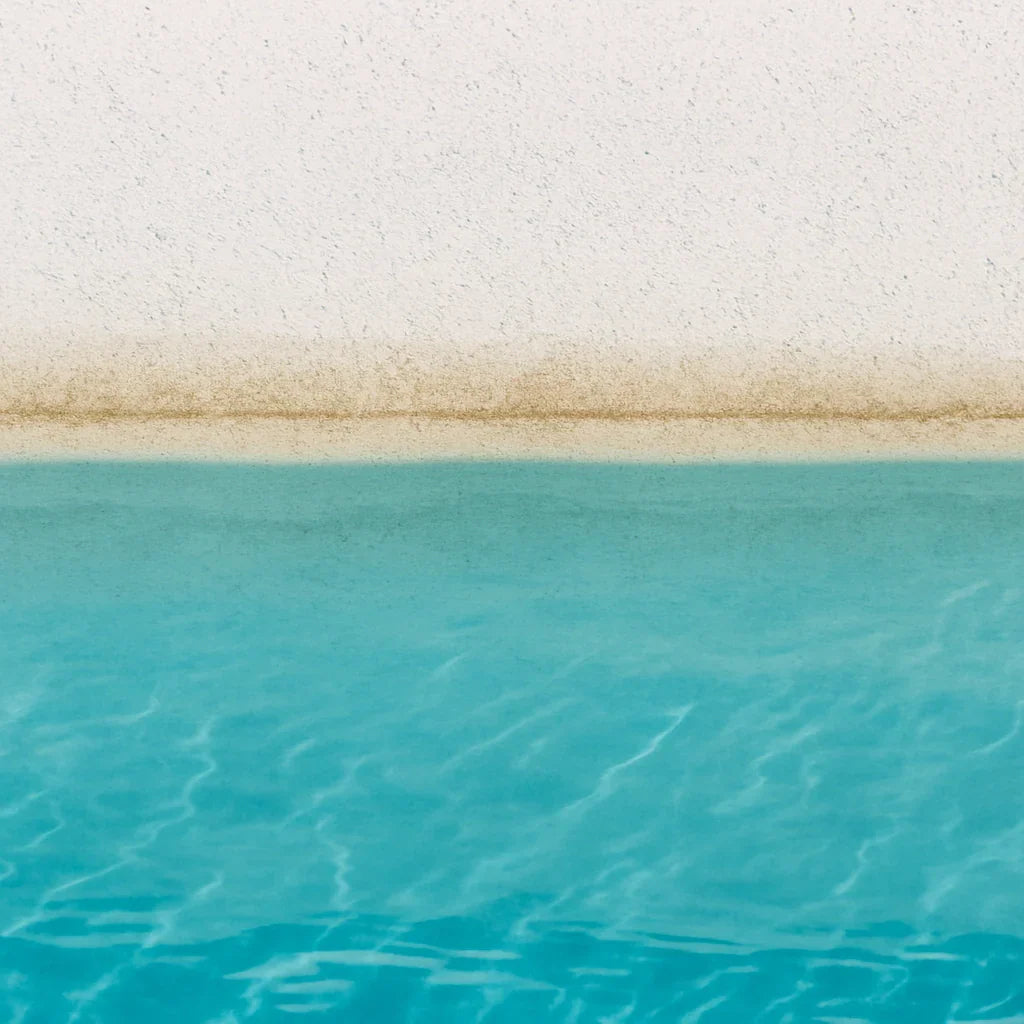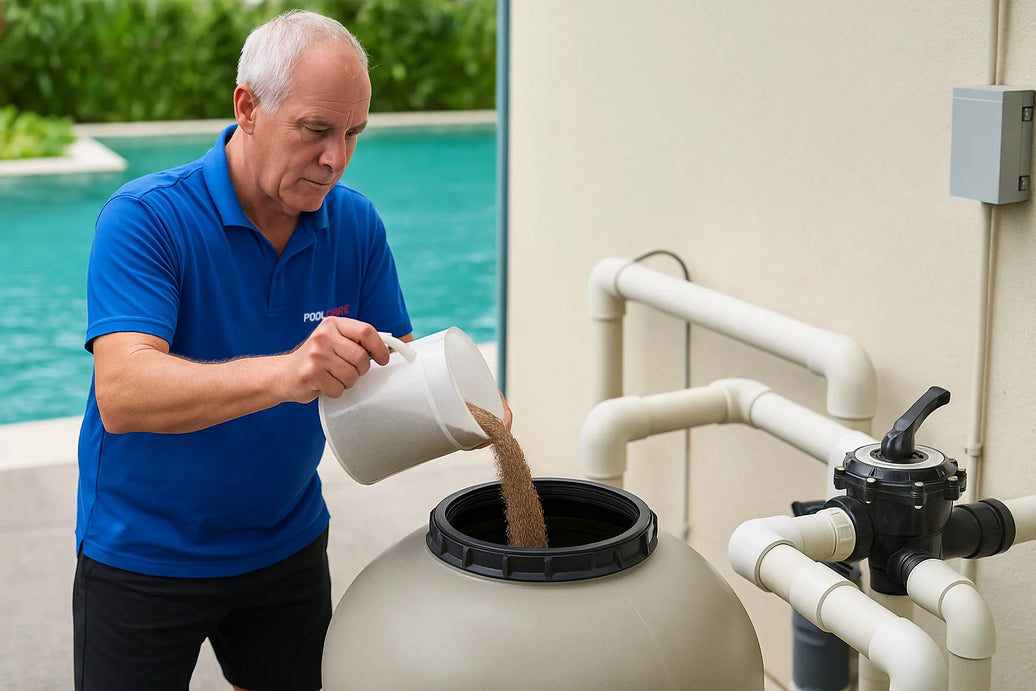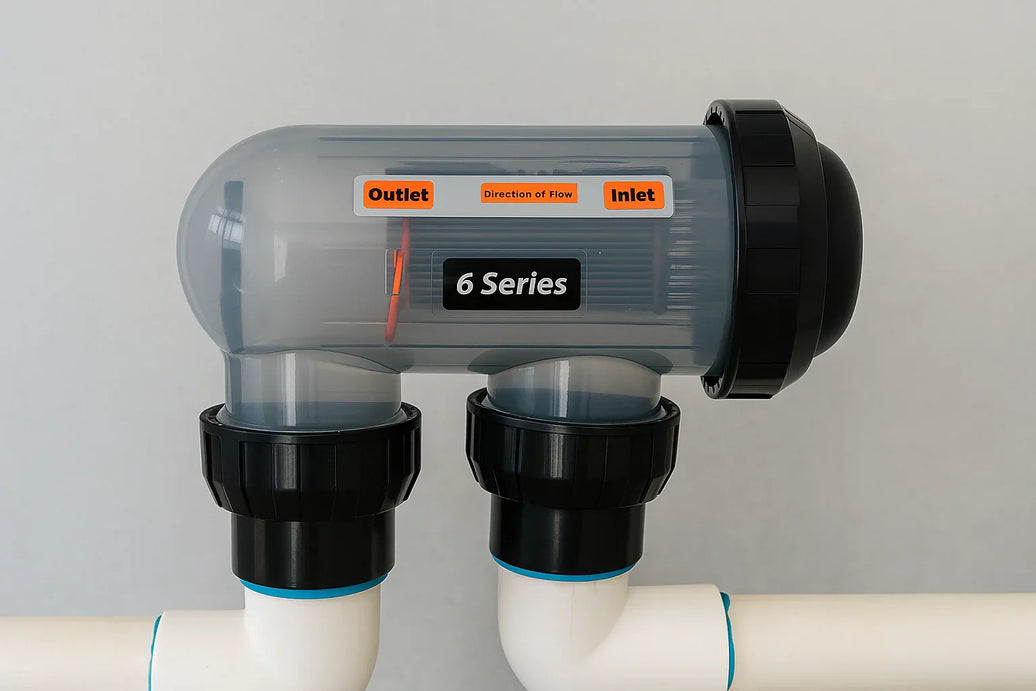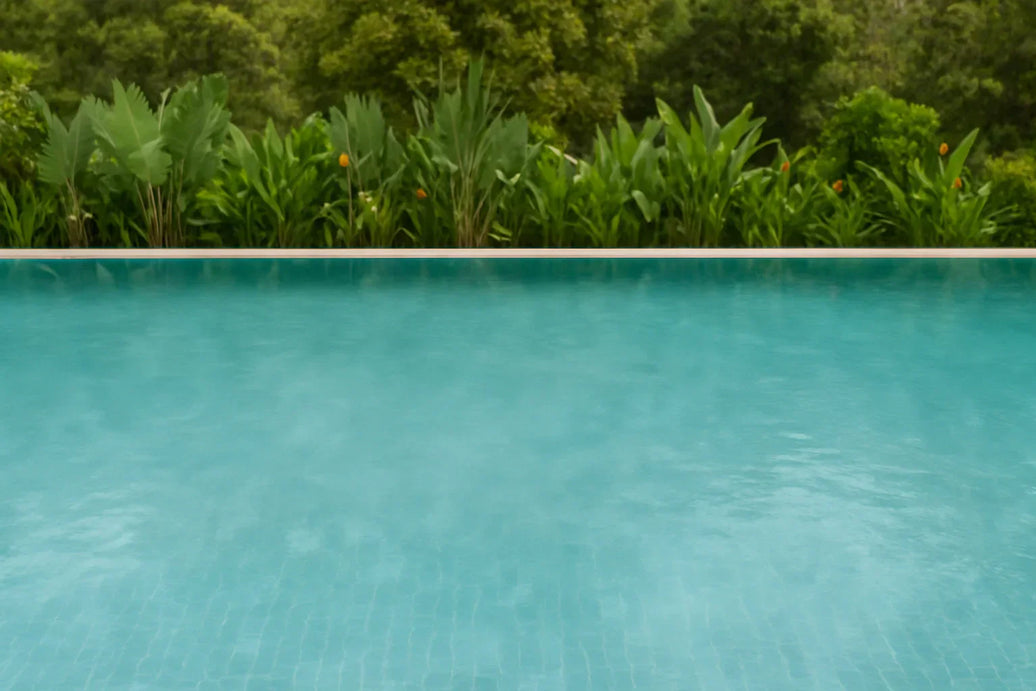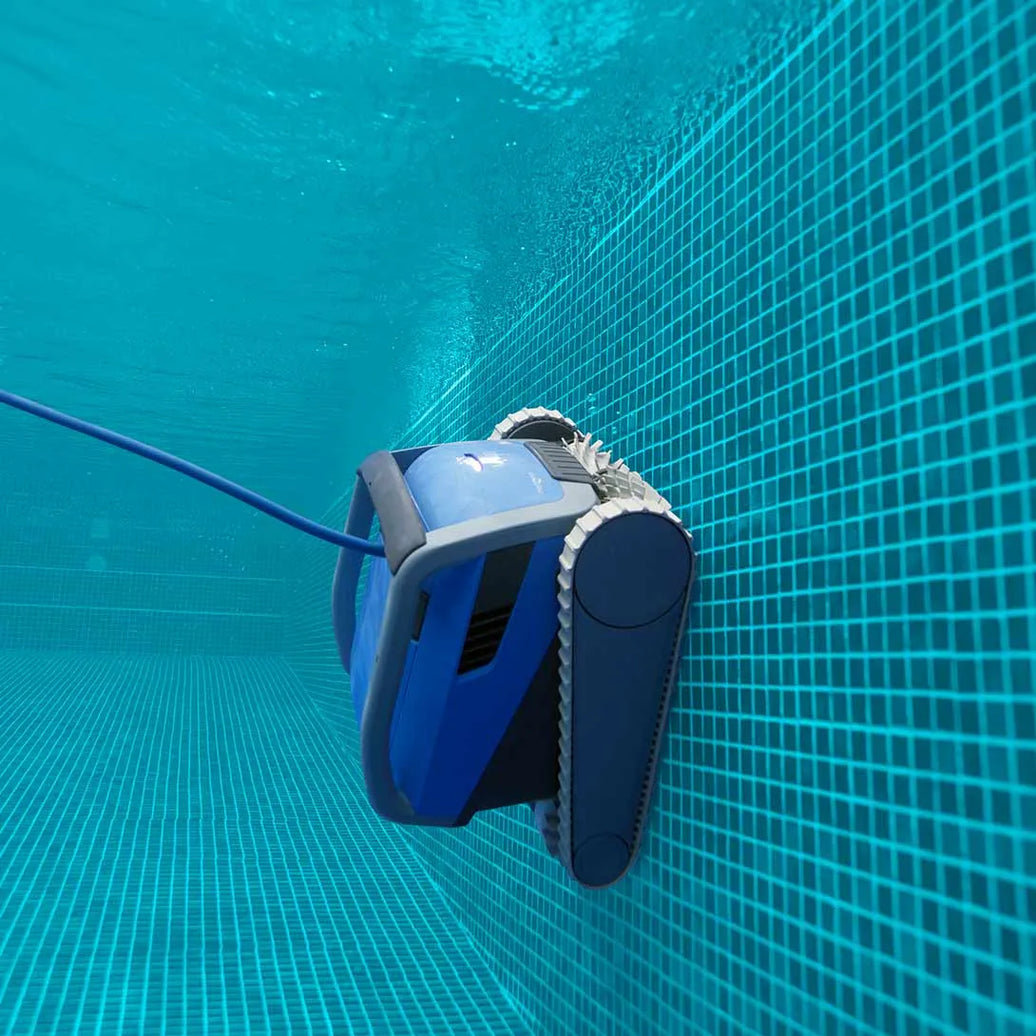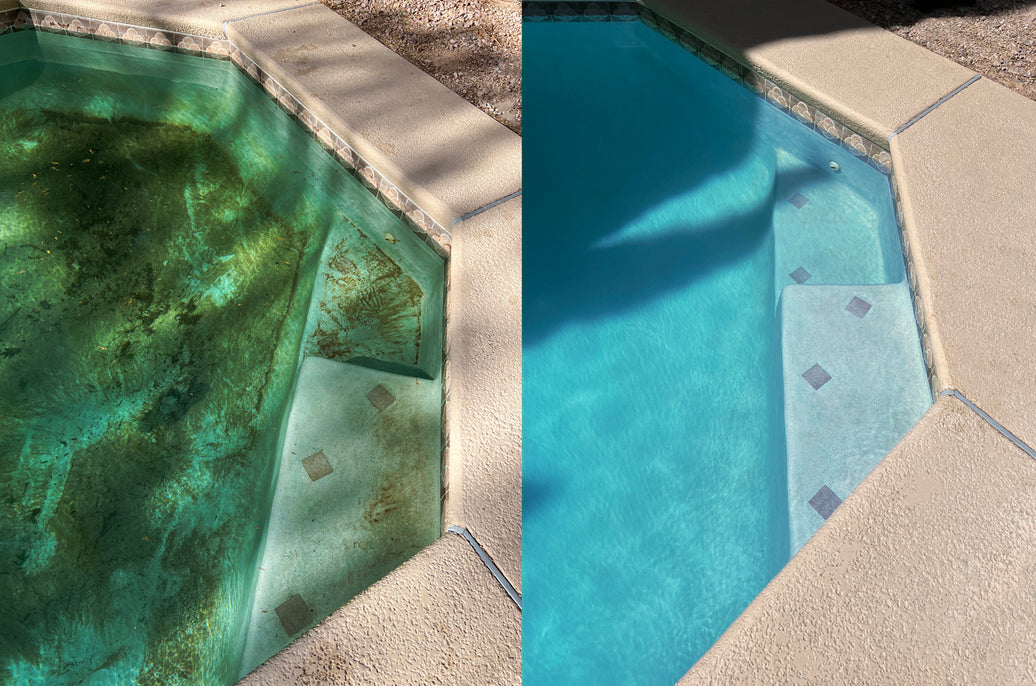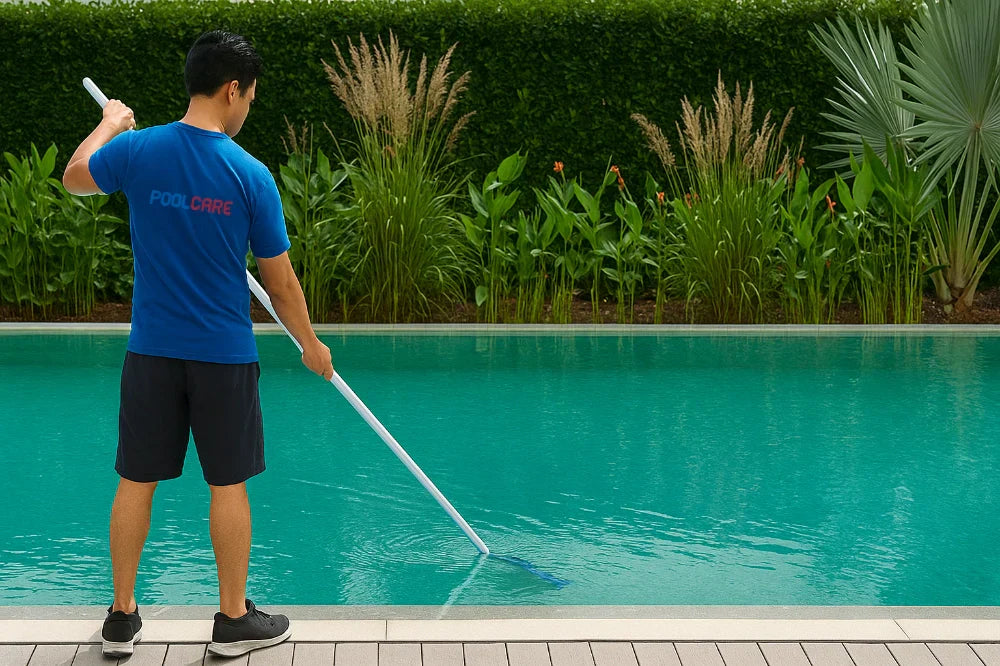Understanding What’s Behind Stains and Scale in Your Pool
Even with the best pool care routine, it’s not uncommon to see stains on surfaces or scaling along the waterline. These issues don’t just affect how your pool looks — they can also impact your water quality, filtration, and long-term maintenance costs.
Let’s break down what causes them, how to treat them, and what you can do to keep your pool looking its best year-round.
What Causes Pool Stains?
Pool stains are typically caused by either metals or organic materials. Identifying which one you’re dealing with is the first step to choosing the right treatment.
-
Metal stains often come from dissolved copper, iron or manganese in your water. These might enter the pool through fill water, old pipes, or corroding equipment. They can appear as bluish, green, brown, or black stains depending on the metal.
-
Organic stains are caused by leaves, algae, dirt, or tannins sitting on the pool surface. These tend to show up as brown, green, or reddish blotches and are usually more irregular in shape.
🧪 Tip: We can test your pool water in-store to identify whether metals are present and advise on the right stain remover.
Understanding Scale (Calcium Build-up)
Scale is a chalky white or greyish deposit — often seen around the waterline, on pool tiles, or even inside pipes and filters. It’s caused by high calcium hardness and elevated pH levels, which lead to calcium falling out of solution and forming visible deposits.
In Tauranga and other parts of NZ with mineral-rich water, scale can build up over time if not managed properly.
How to Treat Pool Stains
Once you've identified the type of stain, treatment can usually be done with the right chemical — no draining required.
-
For metal stains: Use a stain remover formulated for copper or iron. This often involves a sequestering agent that lifts the stain and keeps the metal in solution until it can be filtered out.
-
For organic stains: Shock the pool with chlorine and use a stain brush. Sometimes, applying granular chlorine directly to the stained area can help.
⏱ Note: Be patient — some stains take multiple treatments to fully disappear.
How to Remove and Prevent Scale
-
Use a scale inhibitor – Poolcare stocks products that help soften existing scale and prevent new build-up.
-
Keep calcium hardness in check – Ideal levels are usually around 200–400 ppm.
-
Control pH and total alkalinity – Balanced water reduces the risk of scale forming.
-
Regular brushing – Scrub tile lines and water features weekly to stop scale before it hardens.
If you already have a thick build-up, we can recommend specialist descaler treatments or arrange a visit to assess your pool’s needs.
Prevention Tips to Keep Your Pool Surface Spotless
-
Test your water regularly — especially after rain, topping up, or seasonal changes
-
Use a metal remover or sequestrant if your area is prone to high iron or copper
-
Vacuum organic matter quickly — don’t let leaves and berries sit for days
-
Maintain consistent chlorine and pH levels year-round
Need a Hand?
If you’re dealing with stubborn stains or unsightly scale, pop into our store at 54A Hewletts Road, Mt Maunganui, or give us a ring on (07) 575 8471. We’ll test your water, identify the problem, and get you on the right track fast.
🌐 www.poolcareltd.nzGez

